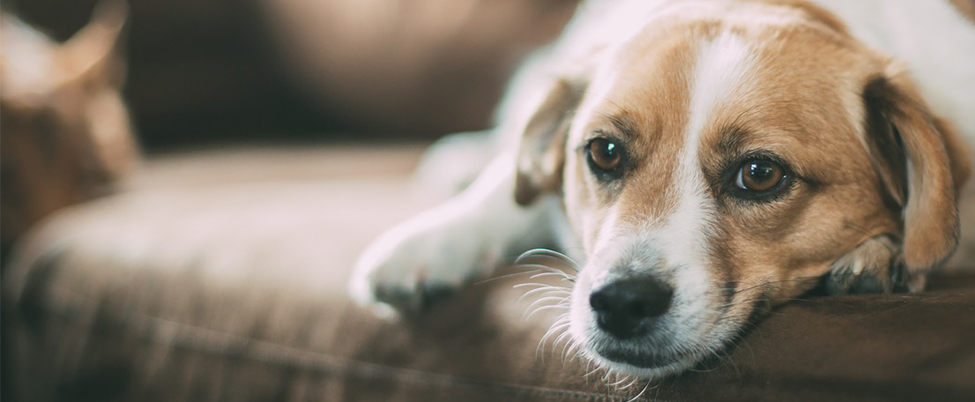Lifestyle
Caring for your new dog

Whether your new dog is a pedigree puppy, or an adult dog from an animal rescue centre, your decision to become a dog owner will be well rewarded.
Your dog will be a loyal companion and will quickly become an important part of your family.
Responsible dog ownership
By becoming a dog owner, you not only accept the responsibility of caring for your dog's basic needs but must also ensure that your dog is well trained and does not become a nuisance to members of the general public.
Puppy vaccinations
- Vaccinating your puppy against infectious and potentially fatal canine diseases is a vital part of being a responsible dog owner.
- A puppy should receive its first vaccination at around eight weeks old and will require subsequent vaccinations to build-up its initial immunity - if in doubt, speak to your vet.
- Avoid walking your puppy in public places and contact with unfamiliar dogs until your vet advises it is safe to do so.
- Your puppy need not be separated from other family dogs, providing they are healthy and fully vaccinated.
- Adult dogs will require an annual booster vaccination to maintain their immunity and most vets will send you a reminder.
- If your dog does not have an up-to-date vaccination certificate, it will not be accepted by a boarding kennel.
- Allow at least a fortnight between the date of the last vaccination and the date you wish to leave your dog at the boarding kennel.
- Keep your dog's vaccination certificate in a safe place!
Dog training
- A well trained dog is a pleasure to own, and you can feel secure in the knowledge that it will have no trouble mixing with others, safely and sociably.
- Training your dog to accept and obey your commands is an important part of dog ownership and will help your dog lead a secure and contented life.
- Begin training your puppy as soon as you bring it home - there are many excellent books available to help you.
- Joining a local obedience class will help you and your dog to socialise.
- Meeting and accepting unfamiliar people and dogs is an important part of your dog's socialisation.
- Take advantage of your dog's natural desire to please you and give it plenty of praise when it does something right.
- If you have taken on an adult dog, find out as much as you can about its home life in the past - it may help you understand and deal with any behavioural problems that occur.
- Do not shout at your dog or use physical punishment - a stern voice is often all that is required.
- If your dog develops a behavioural trait that you find difficult to deal with, ask your vet to examine it before taking any other action in case of a physical complaint or cause.
- An experienced trainer can help you deal with difficult problems - your vet may be able to recommend someone.
Dog neutering
- If you don't intend to breed from your dog, then you should discuss neutering with your vet.
- Spaying and castration are simple, reasonably inexpensive procedures that can also protect your dog from a number of diseases in later life.
- If you follow the advice of your vet, neutered dogs are no more likely to gain weight than un-neutered dogs.
- Your vet will advise you of the correct age at which neutering should be performed.
- Un-neutered dogs will often stray in search of bitches in-heat and can become aggressive.
- If you do not wish your un-neutered bitch to become pregnant you must supervise her carefully while she is in-heat.
Grooming
- Regular grooming will help to strengthen the relationship between you and your dog and will also enable you to check for any abnormalities of your dog's coat or skin.
- Long-haired dogs should be groomed every day to prevent painful mats and knots from forming.
- Dogs with smooth or short coats should be groomed at least once a week to improve circulation and remove dirt and dandruff.
- Any hair loss, skin rashes, lumps or other abnormalities should be reported to your vet.
Dog insurance
- Although insurance is not a legal requirement for dog ownership, the rising costs of veterinary treatment and possible liability claims (for example, if your dog ran out into the road and caused an accident) make insurance an important consideration for responsible dog owners.
- During its lifetime, your dog could suffer any number of illnesses and accidents and a suitable insurance policy will enable you to provide it with the level of care it requires.
Your dog and the law
- Having a dog micro-chipped and wearing a collar with an identity tag with your contact details on is required by law.
- If your dog injures someone or causes an accident, you could be held responsible in a court of law and face an expensive liability claim.
- Make sure you clean up after your dog - under most local bylaws it is an offence to allow your dog to foul in public places and could lead to a hefty fine.
- Keep your dog under control - it is an offence for any kind of dog to be "dangerously out of control" in places, whether public or private, and could result in prosecution.
- Dogs should always be kept on a lead when walked anywhere near livestock.